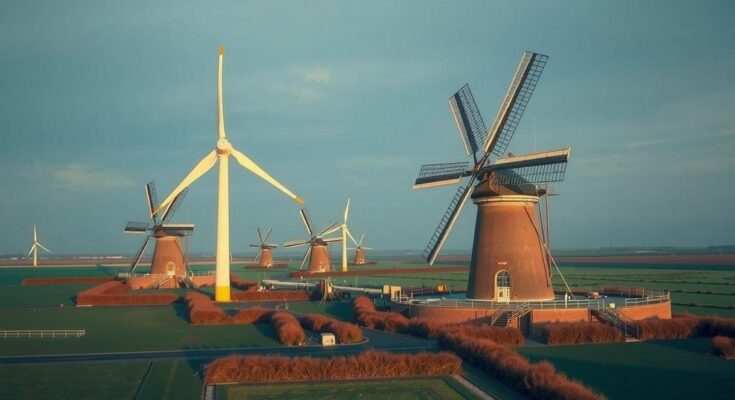Above-average temperatures and enhanced wind power capacity have driven down Dutch and British gas prices, with the Dutch TTF hub price dropping to €39.40 per megawatt-hour and British weekend contracts decreasing to 94.90 pence per therm. Analysts point to a minor expected increase in gas demand during the workweek, despite lower Norwegian gas exports and geopolitical tensions that continue to influence the market.
Recent climatic developments, characterized by above-average temperatures and enhanced wind power projections, have led to a decline in gas prices in the Netherlands and the United Kingdom, offering a reprieve in an otherwise strained market. The rising European temperatures have contributed to a reduction in gas demand, resulting in lower pricing at major trading hubs. Specifically, the benchmark front-month contract at the Dutch TTF hub has decreased to €39.40 per megawatt-hour, while British weekend contracts have fallen to 94.90 pence per therm. This trend is further supported by the anticipation of stable gas consumption in power plants over the weekend, with analysts predicting a modest increase of 88 GWh/d in demand during the upcoming workweek. Nevertheless, it is important to note that Norwegian gas exports have experienced a slight decrease due to extended maintenance, and the narrow price disparity between the Asian and European markets is limiting incentives for US LNG exporters. Amid these developments, geopolitical tensions, particularly involving the Middle East, pose significant challenges and complexities to the current market dynamics.
The current situation surrounding Dutch and British gas prices reflects a confluence of seasonal weather changes and renewable energy generation capabilities. Historically, gas prices are sensitive to fluctuations in demand influenced by weather patterns. The onset of above-average temperatures results in lower heating needs, causing a demand dip that affects pricing strategies at regional trading hubs. The involvement of wind power generation has also played a pivotal role by supplementing energy supply during this period of decreased gas consumption. However, external factors such as geopolitical tensions also contribute to market volatility, emphasizing the interconnectedness of global energy markets and their susceptibility to shaping events unrelated to production or consumption alone.
In summary, the current decrease in Dutch and British gas prices can be attributed largely to mild weather conditions and an increase in wind power generation, helping mitigate demand at key trading hubs. While immediate market responses offer some optimism, the underlying geopolitical tensions maintain a level of unpredictability that necessitates careful monitoring by investors and market participants. Understanding these dynamics is crucial for strategic planning and forecasting in the ever-evolving energy landscape.
Original Source: finimize.com




